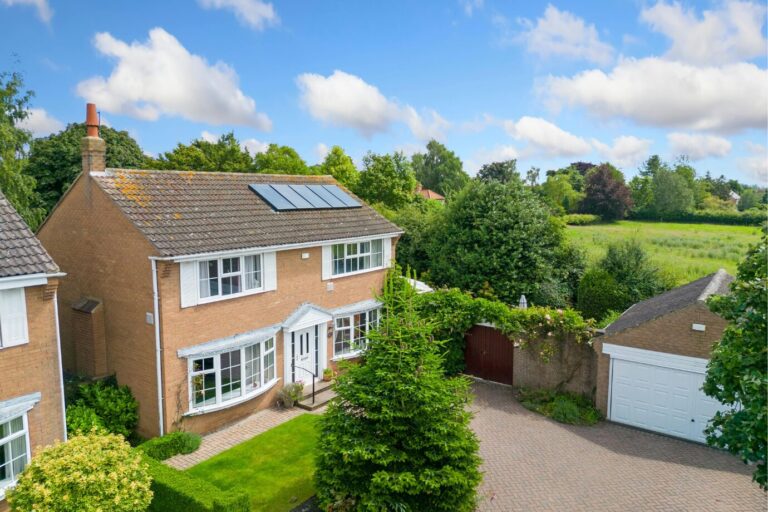Conveyancing is the legal process that needs to happen to transfer ownership of a property from the seller to the buyer. It includes things like property searches, dealing with Land Registry, and checking legal contracts. With the conveyancing process starting when an offer is accepted on a property, and ending on completion day, many sellers want their house sale to go through as quickly as possible.
If you need to stay on track against a particular timeline when selling your home, these ten tips may help you speed up your house sale and get you through to completion as quickly as possible.
10 ways to speed up conveyancing
1. Get your mortgage in principle
Having pre-approval from a mortgage lender shows that you’re a serious buyer and this can put you in a strong position from the start. You can even talk to mortgage lenders and get a mortgage agreement in principle before you’ve found the property you want to buy.
Getting your mortgage in principle arranged early can not only save you a lot of time down the line, it can also reassure sellers, giving them confidence that you can afford the property and that the process can move forward swiftly.
Access the latest mortgage rates available to you
2. Choose your conveyancer early
Another good way to speed up your house sale is to ask for quotes from conveyancers and solicitors before you’ve put an offer on the property you want to buy. As long as you know the price of the property you’re looking for, you can get an accurate quote and choose your conveyancer so they’re ready to start work as soon as your offer is accepted.
3. Online conveyancing
Choosing a conveyancer or solicitor that uses online systems will speed things up for you. Documents can be reviewed and signed online, and secure communication can all happen in one space. Things like this save a lot of time and energy compared to the more traditional offline systems. There’ll be no delays from paper processing, and all updates can be seen in real time.
4. Book your survey promptly
When looking at how to speed up a house sale, getting a property survey completed in good time is crucial. Your survey will flag any issues with the property’s condition. If issues come up on the survey, it could change your offer, or there could be urgent problems that need to be fixed by the seller before the sale can progress.
5. Complete property information forms in good time
When selling a home, you’ll need to fill in a TA6 (Property Information Form) and it’s a legal obligation to fill in the form accurately. The form collects information about the property, such as any local disputes, boundaries, the property history, any planning permissions for the property, and any guarantees for works completed etc. All of this information helps buyers to make informed decisions about moving forward with the sale, or whether they want to find out more about any issues first.
6. Proof of building insurance
You’ll need to have building insurance in place for your new property from the day of completion. This covers you for any damage to the structure of your property from things like fire, storms, and floods. However, it doesn’t cover your contents so you’ll need additional cover for this.
Avoid delays by shopping around for your building insurance in good time and have it ready to go, as your mortgage lender may need proof of your building insurance before they’ll release your funds.
7. Have your paperwork to hand
The conveyancing process is full of paperwork and information gathering, so you’ll be asked to find lots of documents. These will be related to your property, your ID, and your finances.
When looking at how to speed up your house sale, gather everything you might need before you even start the conveyancing process, so you don’t delay things by having to find bits and pieces later on. Having all your paperwork on standby really helps to keep things moving, and it helps your conveyancer out too.
8. Communicate well
Answer any questions and enquiries from your conveyancers, estate agents, and mortgage providers etc. as promptly as you can. There are so many questions that come up throughout the conveyancing process, and getting back to people as soon as possible will help things to move forward smoothly.
9. Keep asking for updates
When looking at how to speed up conveyancing, one of the best tips is to stay on top of what’s happening. Pencil in time to check in with your estate agent and solicitor. If there’s an issue that’s slowing things down, make sure you know about it so you can do all you can to get things moving again.
10. Don’t underestimate your estate agent
Estate agents have a keen interest in making your sale complete quickly, after all they are offering a service, and once your sale is complete, they’ve done their job and their payment is due. Keep in touch with them; they’re highly experienced and have skills at talking to interested parties up and down your chain.
Find your local Hunters branch
What is the quickest a house sale can go through?
The speed a house sale goes through is determined by a number of different factors. In the best-case scenario; if you have a cash buyer with no chain, for example, your house sale could go through in as little as two weeks.
However, generally speaking, house sales in the UK take about three months to complete, though some take up to six, or even eight months. Having a long chain can delay things, as can sorting out any issues that come up on the house survey.
The best way to ensure that your house sale goes through quickly is to follow our 10 key steps above. Being proactive, getting ahead with your finances and paperwork, and working with trusted estate agents, will all help your sale to go through as smoothly as possible.
If you’re thinking about moving house, get started now by finding out how much your current home is worth by requesting a free property valuation. You can ask us questions about the current property market, and we’ll help you on your way to finding your next dream home.




